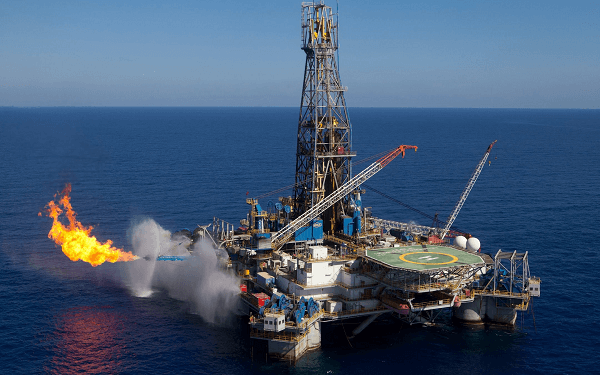World Oil prices on Monday, March 30, 2020, dropped to their lowest levels in eighteen years, below $20 per barrel
This is largely due to the coronavirus pandemic which continues to cripple global oil demand and the insistence of Saudi Arabia to continue with its price war which was started at the beginning of this month.
WTI Crude prices have dropped to $20, representing a percentage decline of 5.67 percent on the day.
Also, Brent Crude prices has reduced to $26 down, a percentage decline by 8.01 percent today.
Oil prices have lost more than 60 percent so far this year and the drop on Monday represents the world crude prices lowest reduction since 2002.
Experts also believe that the global travel restrictions and lockdowns in major economies wipe, which have resulted in the reduction in demand for oil also contributes to the price fall.
The expert also predicts that there will be a collapse of demand on oil by around 20 million bpd in April, should the Covid-19 pandemic prolong.
Ghana’s situation
While World Crude prices continues to tumble, fuel prices remained the same in Ghana.
This has necessitated calls from industry players in Ghana to begin pushing for a further reduction of ex-pump fuel prices by the Oil Marketing Companies in the country.
For instance, the Chamber of Petroleum Consumers Ghana (COPEC), has called for a reduction in fuel prices on the domestic market following the sudden drop of the prices of crude oil on the international market.
COPEC is demanding a 16% reduction in fuel prices in the country
Also, the Former Chief Executive of the National Petroleum Authority (NPA), Mr Alex Mould, is predicting a 20% reduction on prices of petroleum products beginning April 1, 2020.
“Per the daily price indicators used for the Petroleum Price Build-Up (PBU) and published by the NPA, we have seen world crude oil prices dropped from $540/ton (t) in March 1 to $212/ton (t) which translates to a drop of 60%”, he said in a press statement issued yesterday.
He added that going by the PBU indicators and the methodology used to derive same, he expects petrol prices to go down as low as GHS GHS4.00 per litre.
“This price can go down even further with Government interventions in the form of tax breaks” he noted.
Below is the Full statement as issued by Mr Alex Mould
As the lockdown to combat the spread of the coronavirus is now in effect, Ghanaian families and businesses will have to reset. A domino effect on our economy caused by the pandemic is expected to bring about challenges such as loss of income, business, increase in the costs for goods and services, and other factors impacted by increased transportation costs.
The challenges of the current season provide a responsibility to quickly visit “win-win” opportunities to alleviate some of the financial burdens on all Ghanaians – April 1st presents a “no-brainer” opening to reduce the cost of petrol at the pump.
Petrol is at its lowest price since the 1990s – $0.38/gallon wholesale from U.S refiners and Wholesalers. With this in mind, Ghana should expect a drastic drop of up to 20% in petrol prices on April 1st.
Petrol is currently imported into Ghana for less than $0.24/litre or GHS 1.40/litre (based on FX rate of GHS5.85 GHS/USD).
The daily price indicators used for the Petroleum Price Build-Up (PBU) as published by the National Petroleum Authority (NPA) are as follows:
– 1st March: $540/ton (t)
– 16th March: $434/ton (t)
– 1st April: $212/ton (t)
This translates to a drop of 50% from 16th March and a 60% drop from 1st March.
Going by these Price Build-Up (PBU) indicators and the methodology used to derive them, we expect petrol prices to go as low as GHS GHS4.00/litre. This price can go down even further with Government interventions in the form of tax breaks.
From the PBU, the taxes and distribution costs of petrol are GHS1.50/litre and GHS1.10/litre respectively (or GHS 2.60 combined); which represents about 65% of the pump price of petrol.
This makes Ghana one of the highest-taxed countries with respect to petrol.
I am reliably informed that Government is being advised to seriously contemplate removing the nuisance “Special Tax” (GHS0.46/litre) and the outdated “Price Stabilization” levy (GhS0.16/litre). If done, we could see prices fall even lower than the expected GHS 4.00/litre to below GHS 3.50/litre.
Enacting these very doable reductions would be a relief to so many – remembering that nearly 80% of our population constitutes key workers who, in serving the public will have to embark on alternate (and more expensive) transportation means to keep themselves safe, as per social distancing guidelines.
Notes
Note: a US Gallon is 3.875 litres whereas a UK Imperial Gallon – what is used in Ghana – is 4.5 litres.
PBU is agreed to by all the players in the value chain – (Chamber of Bulk Distributors (CBOD), Association of Oil Marketing Companies (AOMC), Tanker Owners, and Tanker Drivers; collectively the sector players).










